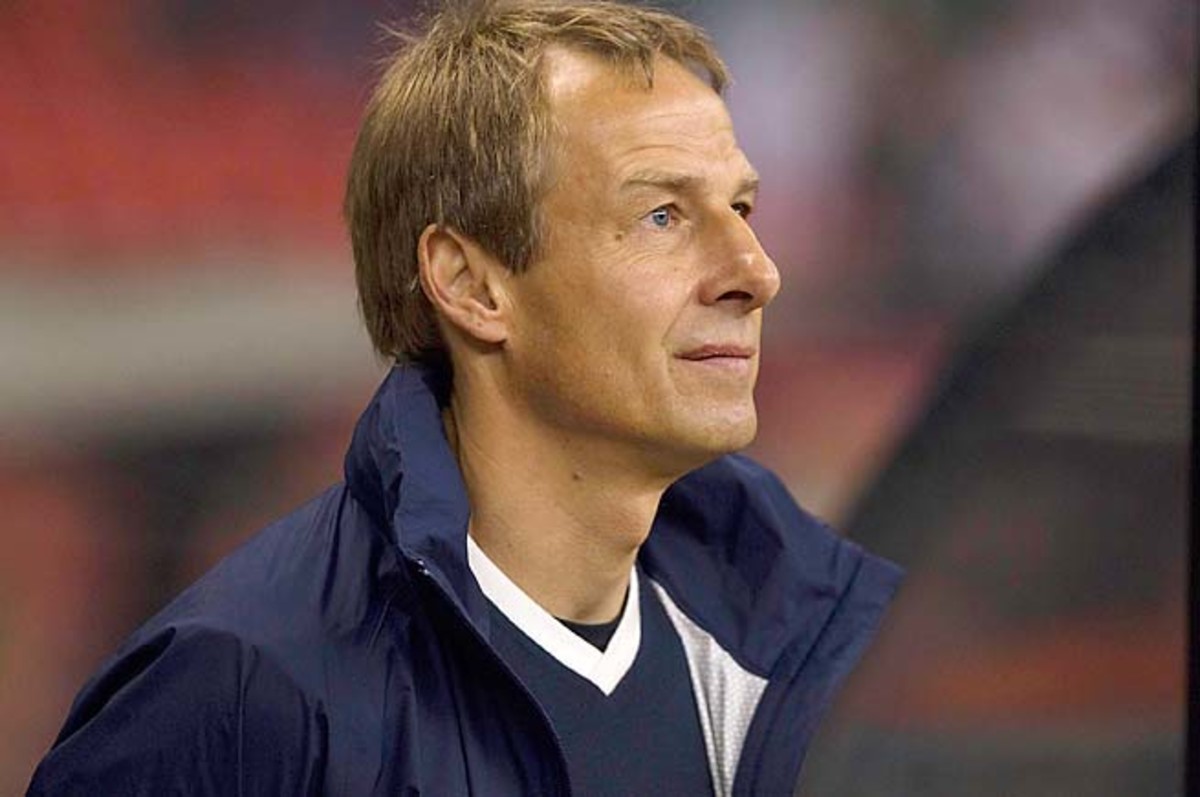Jurgen Klinsmann sees Bundesliga as top league long-term


Juergen Klinsmann believes the all-German Champions League final is not a fluke and is confident the Bundesliga can establish itself as one of the top three leagues alongside England and Spain.
In an interview with Reuters, the U.S. coach and former Germany captain said a superb soccer infrastructure, the Bundesliga's solid financial base and the entertaining style of play are the ingredients that have made it a European powerhouse with the potential to become the world's top league.
"I think the Bundesliga will be among the top three leagues for the long term and we all hope it'll be the number one league in Europe for many years," said Klinsmann, who played in the Bundesliga for VfB Stuttgart from 1984-89 and Bayern Munich from 1995-97.
The Bundesliga had long languished in the shadows of England, Spain and Italy - with its lower salaries, fewer stars, early Champions League exits and a less-than-sparkling style of play.
However, the Bayern Munich-Borussia Dortmund Champions League final on May 25 has given the Bundesliga a new lustre.
"It's obviously not always going to be two German teams in the final but I think we'll continually see one of our teams in the final four," said Klinsmann, 48.
"I hope we'll see a German team going far every year in the Champions League. There are many components that play a role in that success."
Klinsmann took over as coach of a dispirited Germany squad after their humiliating exit in the opening round of Euro 2004 and helped rebuild the side in two years with sweeping changes, bringing in U.S. fitness trainers, a team psychiatrist and shaking up the entire national federation (DFB).
A former striker who also played for Inter Milan and Tottenham Hotspur, Klinsmann put a new emphasis on attacking soccer and his team often pushed for goals even when comfortably ahead.
That philosophy trickled down across all levels.
"At the end of the day, that's what the fans want to see - attractive and attacking football," Klinsmann said.
"They want to see excitement. They want to go to the stadium and see goals. Yes, there can be an exciting nil-nil too. But at the end of the day it's all about scoring goals. There's a new generation of coaches in Germany that have had a big influence on the game.
"There are many coaches out there in Germany who are fans of the attractive and attacking style, who are willing to take risks," he said.
"They're willing to give players the chance to try things out and therefore making the game really attractive. That's really cool."
There have been on average 2.87 goals per match scored in the Bundesliga this season, up from an average of 2.68 goals per game in 2002/03.
Klinsmann said the Bundesliga's success this year in the showcase European club competition was the culmination of years of hard work and organisation.
Not a single German club made it to the quarter-final round of the Champions League in the seasons 2002/03, 2003/04 or 2005/06.
The establishment of the league's "Leistungszentren", or youth academy system, in 2001 is another important ingredient. Many of Germany's best players such as Mesut Oezil, Manuel Neuer, Thomas Muller and Mario Goetze came from those youth academies.
The sound financial basis that German clubs have, thanks in part to their conservative spending habits, the mostly sold-out stadiums and lucrative if unspectacular TV revenues have also helped make the Bundesliga increasingly appealing to some of the world's top playing and coaching talent - such as Pep Guardiola who will take over as coach of Bayern Munich next season.
"The clubs are really healthy in Germany and the infrastructure coming out of 2006 (World Cup) plays a role in that too," Klinsmann said.
"There are big, beautiful and safe stadiums. You see younger and older people in the stadiums now, girls, women, and you see families. It wasn't always like that a decade ago. A lot has changed in a wonderful way."
Overall attendance at Bundesliga is up by more than four million to 13,805,496 in the 20011/12 season from 9,459,502 in the 2001/02.
He said prudent spending and decisions by Bundesliga executives has proven to be the right way to go and is one of the main reasons he is so optimistic about the chances of it becoming the world's top league one day.
"I think there are other countries that are struggling big time," Klinsmann said.
"Italy and England are struggling big time. Even the bigger teams have so much debt that it's scary. I think in the long run Spain will jeopardise its foundation if there are only two teams controlling the whole market. It's not going to work."
